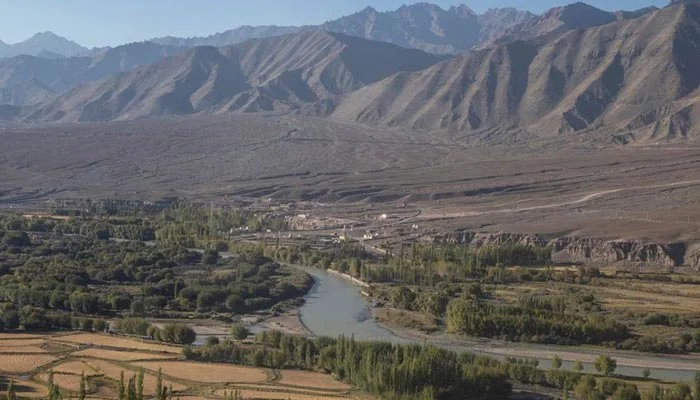In a baffling move, while mobile data services made a sluggish return on Friday night, major social media platforms remained under lock and key even two days later. The interior ministry, seemingly oblivious to the significance of connectivity and access in today’s world, has yet to grant permission for the restoration of these platforms. This ongoing blockade not only reveals the government’s cluelessness but also highlights its disconnect from the realities of the digital age.
As protests erupted nationwide, the government promptly blocked access to Twitter, Facebook, and YouTube, where videos capturing acts of vandalism were being shared. Despite the resumption of mobile data services, the Pakistan Telecommunication Authority (PTA) asserted that the ban on Twitter remained in place, as directed by the ministry. The reasoning behind this decision is that opposition parties might exploit these platforms for their political gain. It is perplexing to comprehend how such a narrow-minded approach will effectively prevent the opposition from disseminating their narrative. This is far from a solution, particularly when a significant number of people have resorted to using VPN connections. Political party accounts continue to post on both YouTube and Twitter, ensuring that the flow of discourse remains unrestricted and beyond the government’s control.
The government’s failure to grasp the power and influence of social media platforms is evident. Instead of recognizing their potential as tools for constructive engagement and public dialogue, the government’s actions suggest a desperate attempt to stifle dissenting voices and control the narrative. However, in an era of technological advancements and widespread digital literacy, such attempts are bound to fail.
Moreover, the restriction on social media platforms not only curtails freedom of expression but also hampers businesses, education, and social interactions that rely heavily on these digital spaces. Entrepreneurs and small businesses, who depend on social media for marketing and customer outreach, are left in limbo. Students and educators grappling with remote learning find their access to information and resources limited. Even the common citizen, seeking connection and community, is denied the opportunity to engage in meaningful conversations and express their opinions freely.
Don’t forget to Subscribe our channel & Press Bell Icon.
It is high time for the government to recognize the significance of connectivity and digital platforms as catalysts for progress and democratic participation. Instead of attempting to control and manipulate public discourse, the government should embrace openness, transparency, and the power of diverse voices. By fostering an inclusive and constructive online environment, the government can tap into the immense potential of digital spaces and harness them for the betterment of society.
The rise of VPN usage has become a source of amusement among internet-savvy individuals. The ongoing blockade not only inadvertently facilitates VPN providers in accessing the data of countless Pakistanis but also highlights the administration’s lack of concern for data privacy—an issue that should be of paramount importance in the digital age.
The current approach can be likened to placing a flimsy wooden chair in front of a gate, foolishly believing it will prevent it from being opened. The actions of the interior ministry lay bare the disconnect between our leaders and the aspirations of a country striving for digital transformation in its economy. These restrictions pose a multitude of problems, not only due to their authoritarian nature but also due to the far-reaching and significant consequences they entail. How can we expect to attract much-needed investment, particularly in the thriving IT sector, when our actions send a negative message to potential investors? It is imperative that we establish safeguards to ensure that such reckless decisions, which jeopardize the economy and livelihoods, are never made at the whims of a select few in power. Legislation must be enacted to clearly delineate the parameters and repercussions of such actions, serving as a deterrent for future governments.
The ramifications of the social media blockade extend beyond mere inconvenience. They represent a missed opportunity for the country to harness the potential of digital platforms for economic growth, innovation, and democratic engagement. By stifling access to these platforms, the government not only hinders the free flow of information and expression but also limits the ability of businesses to thrive in an increasingly digital world. In an era where connectivity and access are key drivers of progress, the government’s regressive approach hampers our collective advancement and tarnishes our global image.
Furthermore, the lack of a coherent and forward-thinking strategy is evident. Instead of embracing the digital age and leveraging its power, the government’s actions reek of a desire to maintain control and suppress dissent. By denying citizens the freedom to express themselves and engage in open dialogue, the government only fuels frustration and discontent. It is crucial for our leaders to recognize that inclusivity, transparency, and respect for digital rights are the cornerstones of a progressive and democratic society.
To restore faith in our governance and foster an environment conducive to growth and innovation, it is imperative that the government reevaluates its approach. Instead of resorting to censorship and arbitrary blockades, we need policies that promote digital literacy, protect privacy, and foster an inclusive digital ecosystem. Collaboration between the government, civil society, and tech industry stakeholders is vital to strike the right balance between security and openness, ensuring that Pakistan remains a vibrant and dynamic player in the global digital landscape.
In conclusion, the prevailing blockade on social media platforms not only undermines data privacy but also showcases the government’s lack of vision and understanding in a world that increasingly relies on digital connectivity. The repercussions extend far beyond mere inconvenience, affecting our economy, investment prospects, and global reputation. It is imperative that we establish robust legislation to prevent such arbitrary actions in the future and foster an environment that embraces digital transformation. By doing so, we can harness the power of technology for the betterment of our society and secure a prosperous future for all.
Subscribe our website for latest updates:
https://republicpolicy.com/shop/
Read More:
















